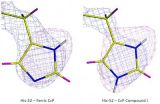(Press-News.org) Re-introducing a type of polio vaccine that fell out of favour in the 1960s could hasten eradication of the disease, according to new research.
The study, by Imperial College London and the Christian Medical College in Vellore, India, suggests that the injected polio vaccine (IPV), which is rarely used today in countries affected by polio, could provide better and longer lasting protection against infection if used in combination with the more commonly used live oral polio vaccine (OPV).
The findings are published today in The Lancet.
Vaccination protects an individual against contracting polio, but they can still be infected by the virus, which replicates in the gut and can be passed to others through contact with infected faeces. This has led to serious polio outbreaks in Asia, Africa and Europe over the last 10 years and is hampering efforts to eradicate the disease.
Most vaccination campaigns use multiple doses of OPV that provide some gut immunity, although this wanes over time.
"Because IPV is injected into the arm, rather than taken orally, it's been assumed it doesn't provide much protection in the gut and so would be less effective at preventing faecal transmission than OPV," explains Dr Jacob John, Associate Professor at the Christian Medical College, who led the study. "However, we found that where the children already had a level of immunity due to OPV, the injected vaccine actually boosted their gut immunity.
"In the 1960s there was extensive rivalry between the scientists who developed the two vaccines, with OPV eventually becoming the most popular. But it looks as if the strongest immunity can been achieved through a combination of the two."
The study involved 450 children from a densely populated urban area in Vellore, India, all of whom had received the oral polio vaccine as part of a standard vaccination programme. Half of the children were given a dose of the injected vaccine and half given nothing. One month later, the children were given a 'challenge' dose of the live oral vaccine to simulate reinfection.
Their stools were tested after seven days to see if the virus was present, specifically the two remaining serotypes of the virus which are resisting eradication – serotype 1 and serotype 3. In the children who had received the IPV, the researchers found that 38 per cent fewer had serotype 1 in their stool and 70 percent fewer had serotype 3, compared to those who had not been given the injected vaccine.
"Our findings show that an additional dose of the injected vaccine is more effective at boosting immunity against infection than the oral vaccine alone," says Nick Grassly, Professor of Vaccine Epidemiology at Imperial College London, senior author of the study. "This implies that the IPV could be used to boost immunity in people travelling from or to polio-infected countries, such as Afghanistan, Pakistan and Nigeria. It could also replace some of the OPV doses in immunisation campaigns to boost gut immunity, particularly in areas of poor sanitation."
In another study published this week in Proceedings of the National Academy of Sciences, Imperial researchers from the same group looked at whether expanding the age range of vaccination campaigns to include older children and adults would help to prevent polio transmission. Using a mathematical model to examine disease transmission in two major polio outbreaks in Tajikistan and the Republic of Congo in 2010, they found that older ages contributed significantly to transmission in Congo but not Tajikistan, which might be related to standards of sanitation and hygiene. However, launching mass immunisation campaigns more quickly in response to outbreaks would have a much bigger impact than expanding the age range, the study reported.
Lead author Dr Isobel Blake from the Medical Research Council Centre for Outbreak Analysis and Modelling at Imperial College London said: "It can take over 70 days to send stool samples to the lab and get back a diagnosis of polio, which means by the time authorities discover an outbreak, many more people are already infected. These findings suggest that methods to detect outbreaks earlier would be hugely beneficial to eradication efforts."
INFORMATION:
The Lancet study was funded by the Bill & Melinda Gates Foundation. The PNAS study was supported by a grant from the Polio Research Committee of the World Health Organization, the Royal Society, and Centre funding from the Medical Research Council.
For more information please contact:
Sam Wong
Research Media Officer
Imperial College London
Email: sam.wong@imperial.ac.uk
Tel: +44(0)20 7594 2198
Out of hours duty press officer: +44(0)7803 886 248
Notes to editors:
1. John et al. "Effect of a single inactivated poliovirus vaccine dose on intestinal immunity against poliovirus in children previously given oral vaccine: an open-label randomised controlled trial" The Lancet, 10 July 2014 D-14-02958R2 S0140-6736(14)60934-X
http://www.thelancet.com/journals/lancet/article/PIIS0140-6736(14)60934-x/abstract
2. Blake et al. 'The role of older children and adults in wild poliovirus transmission.' PNAS, 7 July 2014.
http://www.pnas.org/content/early/2014/07/02/1323688111.abstract
3. About Imperial College London
Consistently rated amongst the world's best universities, Imperial College London is a science-based institution with a reputation for excellence in teaching and research that attracts 14,000 students and 6,000 staff of the highest international quality. Innovative research at the College explores the interface between science, medicine, engineering and business, delivering practical solutions that improve quality of life and the environment - underpinned by a dynamic enterprise culture.
Since its foundation in 1907, Imperial's contributions to society have included the discovery of penicillin, the development of holography and the foundations of fibre optics. This commitment to the application of research for the benefit of all continues today, with current focuses including interdisciplinary collaborations to improve global health, tackle climate change, develop sustainable sources of energy and address security challenges.
In 2007, Imperial College London and Imperial College Healthcare NHS Trust formed the UK's first Academic Health Science Centre. This unique partnership aims to improve the quality of life of patients and populations by taking new discoveries and translating them into new therapies as quickly as possible.
Injected vaccine could help eradicate polio
2014-07-11
ELSE PRESS RELEASES FROM THIS DATE:
The Lancet: World's most advanced dengue vaccine candidate shows promise in phase 3 trial
2014-07-11
The first dengue vaccine candidate (CYD-TDV) to reach phase 3 clinical testing has shown moderate protection (56%) against the disease in Asian children, according to new research published in The Lancet.
Dengue is a mosquito-borne disease that infects around 390 million people each year, of whom about 96 million suffer from symptomatic infection. WHO estimates that the global burden of dengue has risen 30-fold over the past 50 years, with over half of the world's population at risk of the disease.
There is no licensed vaccine available to treat or prevent dengue ...
The Lancet: Extra dose of inactivated polio vaccine boosts immunity in children and could speed up global eradication efforts
2014-07-11
Giving children under 5 years old an extra dose of inactivated polio vaccine (IPV) helps to boost their immunity to the poliovirus and should be added to vaccination programmes in polio-endemic countries and those facing a high risk of imported cases, suggests new research published in The Lancet.
Lead author Dr Jacob John from Christian Medical College, India explains, "Adding a supplementary IPV dose to children already vaccinated with oral poliovirus vaccine (OPV) may hasten polio eradication by boosting herd immunity in endemic regions, act as a booster to prevent ...
The Lancet: Novel treatment for drug-resistant tuberculosis shows promise, but concerns for patient safety remain
2014-07-11
In a viewpoint published this week in The Lancet, the Community Research Advisors Group (CRAG) argue that research into bedaquiline – a new drug, fast tracked for multidrug-resistant tuberculosis (MDR-TB) – should proceed cautiously in people with drug-sensitive tuberculosis. CRAG, an international, community-based advisory board for the US Centers for Disease Control and Prevention's Tuberculosis Trials Consortium, writing in The Lancet independently, urge researchers to balance the goal of shortening treatment for drug-sensitive TB with patient safety.
Bedaquiline ...
Cost of expensive medication in dialysis catheters may be offset by reduced complications
2014-07-11
Washington, DC (July 10, 2014) — Using an expensive agent to prevent blood clots in kidney failure patients' dialysis catheters may turn out to be less costly overall due to its ability to reduce medical complications, according to a study appearing in an upcoming issue of the Journal of the American Society of Nephrology (JASN).
Recombinant tissue plasminogen activator (rt-PA) is a medication used to break up blood clots that occur in the vessels of patients having a heart attack. A recent clinical trial revealed that using rt-PA once per week plus the anticlotting agent ...
High stress, hostility, depression linked with increased stroke risk
2014-07-10
Higher levels of stress, hostility and depressive symptoms are associated with significantly increased risk of stroke or transient ischemic attack (TIA) in middle-age and older adults, according to new research in the American Heart Association journal Stroke.
A TIA is a stroke caused by a temporary blockage of blood flow to the brain.
Researchers investigated how psychological factors might influence risk for chronic disease, using data from the Multi-Ethnic Study of Atherosclerosis (MESA), an ongoing study on cardiovascular disease risk factors in participants living ...
After a concussion, which teens will have emotional symptoms?
2014-07-10
CHICAGO – After a concussion, teens who are sensitive to light or noise may be more likely to also have emotional symptoms such as anxiety, according to a study released today that will be presented at The Sports Concussion Conference in Chicago, July 11 to 13, 2014, hosted by the American Academy of Neurology, the world's leading authority on diagnosing and managing sports concussion. The conference will feature the latest scientific advances in diagnosing and treating sports concussion from leading experts in the field.
The symptoms after a concussion can vary widely ...
Neutron crystallography solves long-standing biological mystery
2014-07-10
The controversy centres around a family of enzymes known as heme enzymes, due to the presence of a heme group in their active site. At the centre of the heme cofactor is an iron (Fe) atom, which becomes oxidised (ferryl) when a reacting heme is in an intermediate state called Compound I. The question that has remained unanswered for decades is whether this oxidation involves just an oxygen atom (O), or a hydroxyl group (OH). Resolving this fundamental question has implications for understanding oxidative processes within living cells, which is critically important for drug ...
Astronomers find 7 dwarf galaxies with new telescope
2014-07-10
Meet the seven new dwarf galaxies.
Yale University astronomers, using a new type of telescope made by stitching together telephoto lenses, recently discovered seven celestial surprises while probing a nearby spiral galaxy. The previously unseen galaxies may yield important insights into dark matter and galaxy evolution, while possibly signaling the discovery of a new class of objects in space.
For now, scientists know they have found a septuplet of new galaxies that were previously overlooked because of their diffuse nature: The ghostly galaxies emerged from the night ...
Study provides new approach to forecast hurricane intensity
2014-07-10
VIDEO:
This is the one-of-a-kind, Alfred C. Glassell, Jr., SUSTAIN research facility at the UM Rosenstiel School of Marine and Atmospheric Science, where Haus and colleagues will conduct further studies on...
Click here for more information.
MIAMI – New research from University of Miami (UM) Rosenstiel School of Marine and Atmospheric Science suggests that physical conditions at the air-sea interface, where the ocean and atmosphere meet, is a key component to improve forecast ...
Extinct sea scorpion gets a Yale eye exam, with surprising results
2014-07-10
Poor peepers are a problem, even if you are a big, bad sea scorpion.
One minute, you're an imperious predator, scouring the shallow waters for any prey in sight. The next, thanks to a post-extinction eye exam by Yale University scientists, you're reduced to trolling for weaker, soft-bodied animals you stumble upon at night.
Such is the lot of the giant pterygotid eurypterid, the largest arthropod that ever lived. A new paper by Yale paleontologists, published in the journal Biology Letters, dramatically re-interprets the creature's habits, capabilities, and ecological ...



